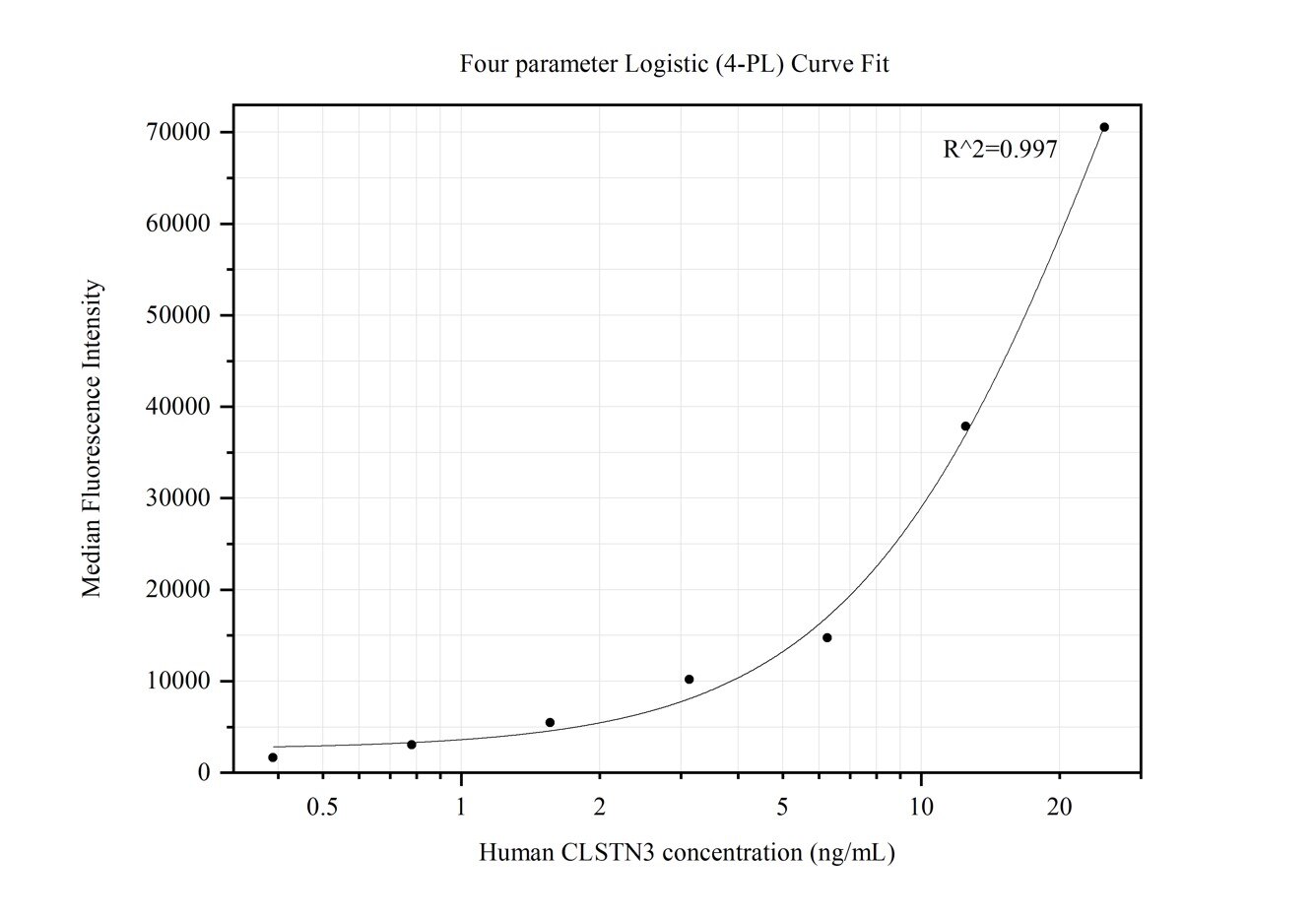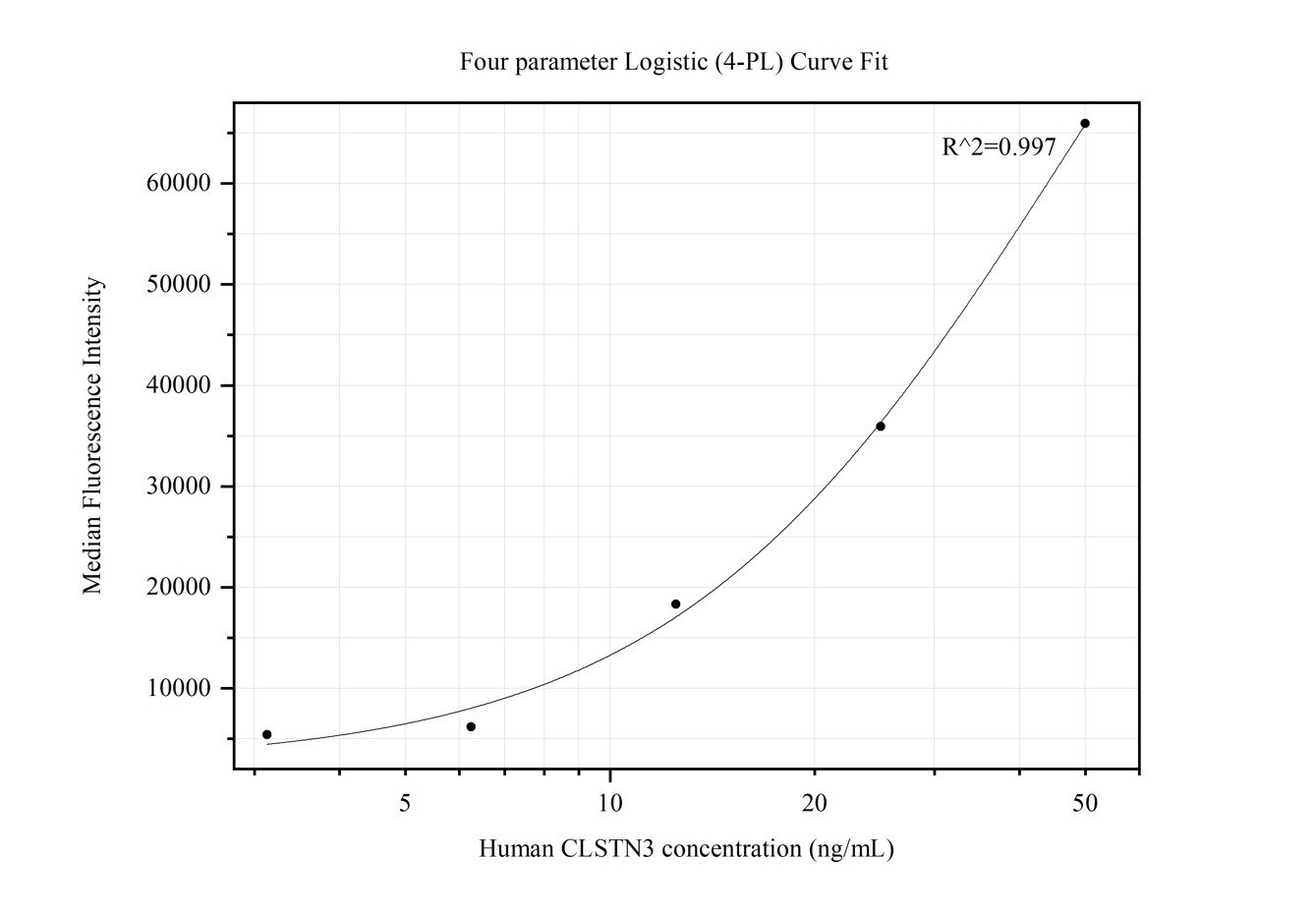Product Information
68855-2-PBS targets CLSTN3 as part of a matched antibody pair:
MP50250-1: 68855-1-PBS capture and 68855-2-PBS detection (validated in Cytometric bead array)
MP50250-2: 68855-3-PBS capture and 68855-2-PBS detection (validated in Cytometric bead array)
Unconjugated mouse monoclonal antibody pair in PBS only (BSA and azide free) storage buffer at a concentration of 1 mg/mL, ready for conjugation.
This conjugation ready format makes antibodies ideal for use in many applications including: ELISAs, multiplex assays requiring matched pairs, mass cytometry, and multiplex imaging applications.Antibody use should be optimized by the end user for each application and assay.
| Tested Reactivity | human |
| Host / Isotype | Mouse / IgG1 |
| Class | Monoclonal |
| Type | Antibody |
| Immunogen |
CatNo: Ag14897 Product name: Recombinant human CLSTN3 protein Source: e coli.-derived, PET28a Tag: 6*His Domain: 206-289 aa of BC039075 Sequence: VLGLVRIHSLHRRVSGAGGPPGASSDPKDPDLFWDDSALTIIVNPMEVRGLGKRGSVGSRLWSTHVLPESAVLCDGGCWGPAGG Predict reactive species |
| Full Name | calsyntenin 3 |
| Calculated Molecular Weight | 968 aa, 107 kDa |
| GenBank Accession Number | BC039075 |
| Gene Symbol | CLSTN3 |
| Gene ID (NCBI) | 9746 |
| Conjugate | Unconjugated |
| Form | Liquid |
| Purification Method | Protein G purification |
| UNIPROT ID | Q9BQT9 |
| Storage Buffer | PBS only, pH 7.3. |
| Storage Conditions | Store at -80°C. |






